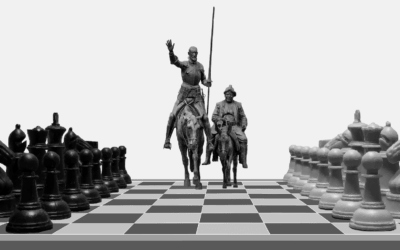EPISODE 132
You Can’t Spell “Officer” without “Office”

Offices come in a variety of shapes and guises, from a room with desks and whiteboards to the front seat of a squad car. In this solo episode, Jim sounds off on his favorite topic: Management is not a dirty word, to be shunned in favor of “leadership”. Rather, management is part of leadership. It’s the art & science of allocating and coordinating resources to meet a goal.
Jim wants to share with you several of the lessons on management he’s learned the hard way, such as when it’s time to lead less. If you’ve managed your team well, you can take some time you’d otherwise have to spend motivating them and instead spend it removing obstacles preventing your highly-motivated people from solving problems efficiently. After all, getting the right people in the right places with the right equipment and a realistic timeline is essential to leadership.
Links:
Maker’s Schedule, Manager’s Schedule
Like what we’re doing? Head over to Patreon and give us a buck for each new episode. You can also make a one-time contribution at GoFundMe.
Intro music credit Bensound.com
CLICK BELOW TO SUBSCRIBE NOW ON YOUR FAVORITE PLAYER
THANK YOU TO OUR SPONSORS! PLEASE GO CHECK THEM OUT
Recent Episodes
It’s Chess AND Checkers–Tactics and Strategy Unite!
Why do we focus so much on tactics and so little on strategy? In this episode, Mike and Jim tackle the divide between street-level action and big-picture thinking. Drawing on lessons from policing, the military, and community crime prevention, they explore how individual cops, community members, and leaders can influence criminal decision-making—not just react to it.
Topics include resource constraints, the Broken Windows theory, and strategies for shifting offender perceptions to prevent crime before it occurs.
Hazing vs. Hardening: Building Strong Teams Without Breaking People
Hazing, or just holding the new guy to a high standard? That line matters—and we’re walking it in this episode. Mike and Jim break down where real team-building ends and toxic tradition begins. We’re talking SWAT school, academy culture, leadership, and how to onboard new teammates without wrecking morale. This one’s about building teams that are tough, smart, and built to last.













